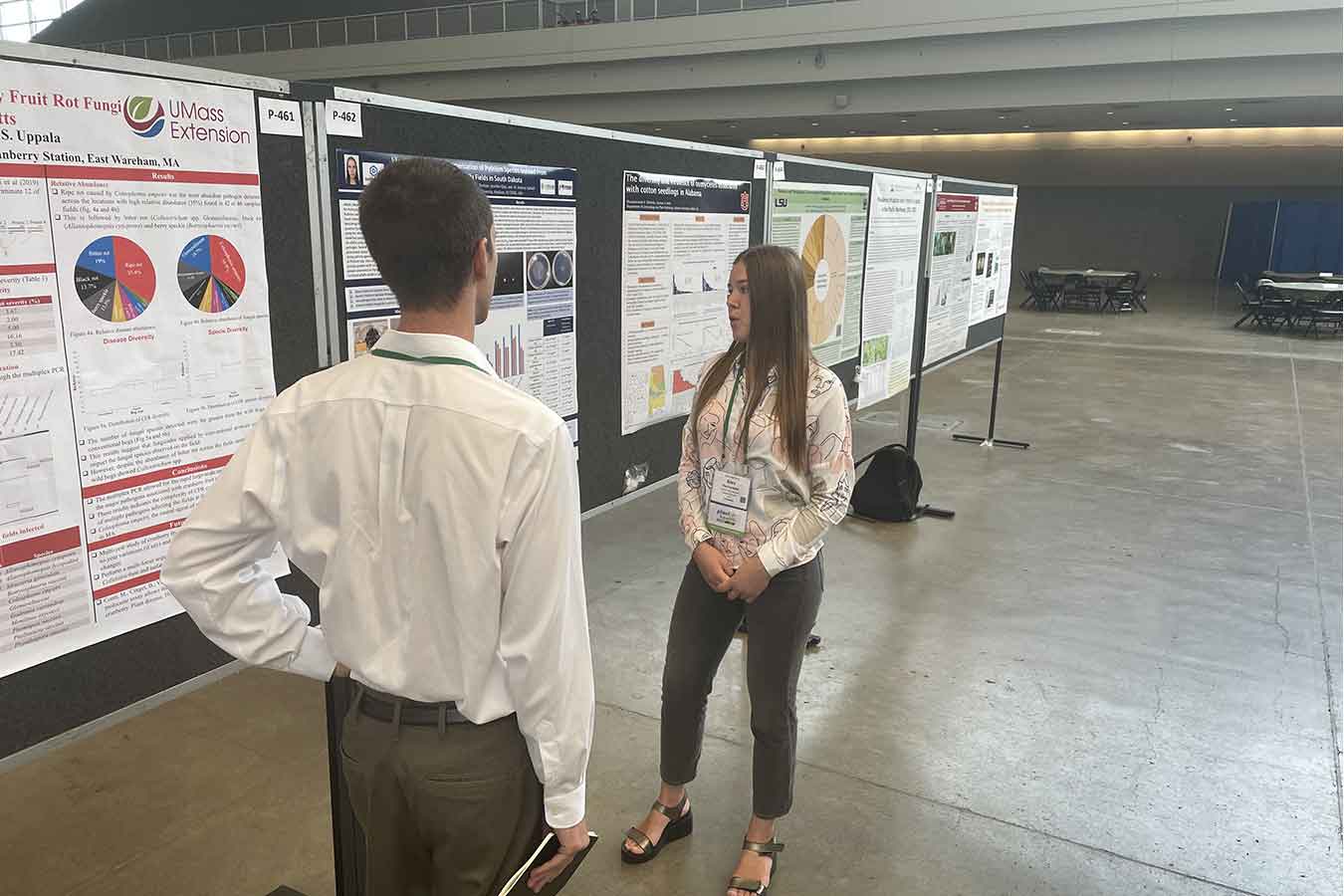Rachynska youngest presenter at National Plant Conference
September 1, 2022

Sophomore Alex Rachynska was the youngest presenter at the Plant Health 2022 Conference in August in Pittsburgh, Pa.
Rachynska shared alfalfa research she and fellow DSU students have conducted over the course of the school year and summer. The poster she presented, “Identification and Characterization of Pythium Species Isolated from Commercial Alfalfa Fields in South Dakota,” showcased the results of their work.
“We had submitted an abstract last March,” said Dr. Andrew Sathoff, Assistant Professor of Biology. “It was accepted, and we generated the poster over the summer.”
Rachynska, an international student from Ukraine, worked to select the essential information for the poster, illustrate it, and arrange it in an understandable way. She then practiced presenting the poster with Sathoff.
At the conference, she presented the poster to many, even taking the time to present it in Russian, at the request of an attendee. “It was a little bit harder for me to do it in Russian because I was practicing in English,” she said.
She enjoyed presenting the poster to attendees and those interested in plant health. “Some people were alfalfa experts and would suggest ideas or tell me about their research,” Rachynska said.
Several people asked her what her Ph.D. study was in and were surprised to find out she was an undergraduate researcher. “I chose DSU because of the lab research,” she said.
To conduct the research, the students “sample alfalfa fields, extract DNA to detect Pythium (root rot), perform a culture plate method to see if it’s pathogenic against alfalfa, and perform fungicide testing to see if it can inhibit the Pythium growth,” Rachynska explained.
The findings Rachynska presented on the poster are:
- Pythium isolates are likely causing alfalfa field growth and establishment issues across eastern South Dakota.
- Pythium aphanidermatum TR9 and Pythium heterothallicum L8 demonstrate higher pathogenic levels compared to other tested South Dakota isolates.
- Both Apron XL and CruiserMaxx demonstrated growth suppression against multiple Pythium lines.
- More pure cultures baited out from the soil still need to be characterized using Sanger DNA sequencing.
- Our collection of Pythium isolates will be evaluated against other fungicides in the fall.
The students can share their research identifying and characterizing isolates in research and industry.
“No one else in the world has these isolates,” Sathoff said. “They’re unique to South Dakota, and they grow a lot of alfalfa here, and we’ve confirmed them as pathogens, so people want to test them.”
Rachynska is excited to continue research in the biology lab. The students will continue their research this fall and may look into Soybean Sudden Death Syndrome next.
DSU student Kalman Lengyel also attended the conference, listening to sessions on cyber agriculture.
